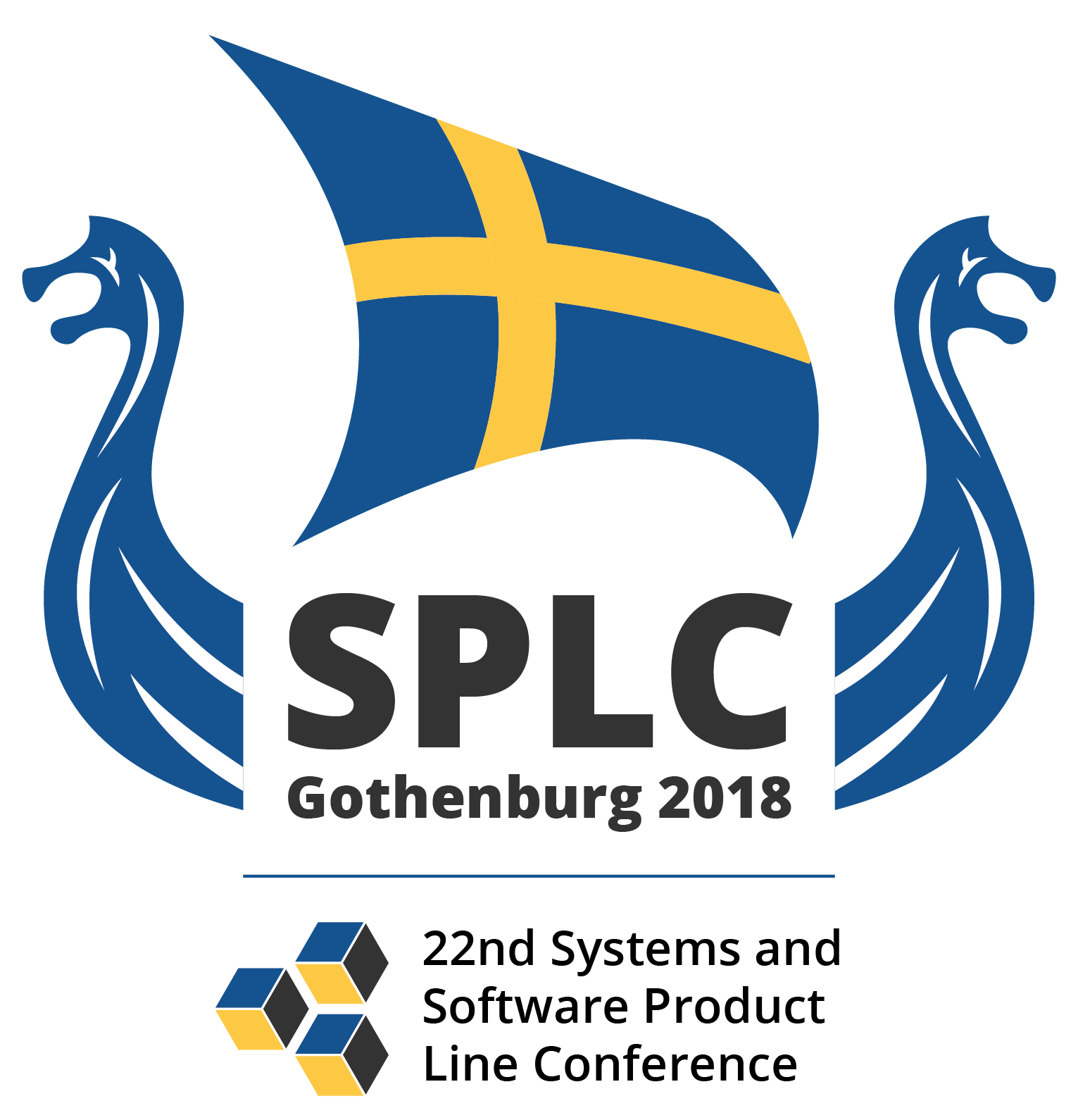Industry Forum
See our last-minute special offer for attending the industrial forum!
Scope
- Do you have an abundance of software or system variants that you need to handle for your customers?
- Are you drowning in maintaining many little customizations for your customers?
- Do you have to deal with huge configuration files to set the parameters of your systems?
- Are you challenged by the complexity of testing, validation, and verification of your systems?
If you have faced any of these challenge and/or think you have found a solution for them, then we are looking forward to welcoming you in our industry forum.
Program
- 08:30-09:00 Arrival and Registration
- 09:00-09:15 Opening
Keynote
- 09:15-10:15 Mattias Nyberg (Scania and KTH), Generating assurance cases for product lines of trucks.
- 10:15-10:30 Discussion
- 10:30-11:00 Coffee / tea break
Best Practices
- 11:00-11:30 Best practice: Dr. Charles Krueger and Dr. Paul Clements, BigLever Software, Feature-Based Systems and Software Product Line Engineering: PLE for the Enterprise.
- 11:30-12:00 Best practice: Prof.dr. Danilo Beuche, Pure Systems GMBH, The Future of Product Line Engineering Infrastructures – A Tool Vendor’s Perspective.
- 12:00-13:30 Lunch Break
Best Practice (Cont’d)
- 13:30-14:00 Dr. Juha-Pekka Tolvanen, MetaCase, Experiences on Applying Domain-Specific Languages for Variant Development.
Group Discussion
- 14:00-15:00 Group discussion
- 15:00-15:30 Coffee / tea break
- 15:30-16:00 Group presentation
- 16:00-16:30 Closing
Keynote Speaker
Mattias Nyberg, Scania and KTH Royal Institute of Technology, Sweden
Title:
Generating assurance cases for product lines of trucks
Abstract:
An assurance case is a structured argument for showing that a product satisfies some important property, typically safety, and in that case, the assurance case is called “safety case”. Assurance cases for complex products like trucks are challenging to derive, and for large product lines that contains potentially huge numbers (billions) of different product variants, deriving assurance cases is even harder. New systematic methodologies are needed and also tool support. Due to the high degree of criticality of many systems, the systematic methodologies should be grounded in formal theoretical frameworks. Moreover, to cope with the huge number of different products, the methodologies need to be based upon compositional verification. That is, it is not realistic to verify that each product variant satisfies the considered property; rather, this has to be derived from verification of individual components combined with knowledge of how the components constitute the different products. A suitable framework for such formal compositional reasoning is contracts-based frameworks, which lately have been extended, from supporting only software development, to now support general development of heterogeneous systems. Regarding tool support, a cornerstone for its industrial success is digitalization of engineering. This is a challenge since engineering, like in the automotive area, is today often organized in a relatively unstructured way and with many important pieces of information stored in non-machine-readable format and in isolated data silos. To be able to construct a tool for automatic generation of assurance cases, this information needs to be made machine-readable and integrated, something that in turn will challenge current unstructured work processes.
Best Practice Reports
- Prof.dr. Danilo Beuche, Pure Systems GMBH, The Future of Product Line Engineering Infrastructures – A Tool Vendor’s Perspective.
- Dr. Charles Krueger and Dr. Paul Clements, BigLever Software, Feature-Based Systems and Software Product Line Engineering: PLE for the Enterprise.
- Dr. Juha-Pekka Tolvanen, MetaCase, Experiences on Applying Domain-Specific Languages for Variant Development.
Join Us
If software is (becoming) a major part of your product and if your software needs to be designed or configured to support many different types of products, then our Bootcamp will have something to offer for you. In particular, we will discuss major problems and best practices regarding designing, developing, and testing with support for variability.
To ensure an effective discussion, we only have initiated a limited number of targeted invitations. Please email one of the organisers (jesper.andersson@lnu.se and mm789@le.ac.uk), with a short introduction about your company and yourself, to receive an invitation.
